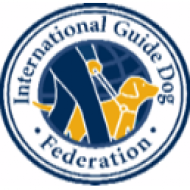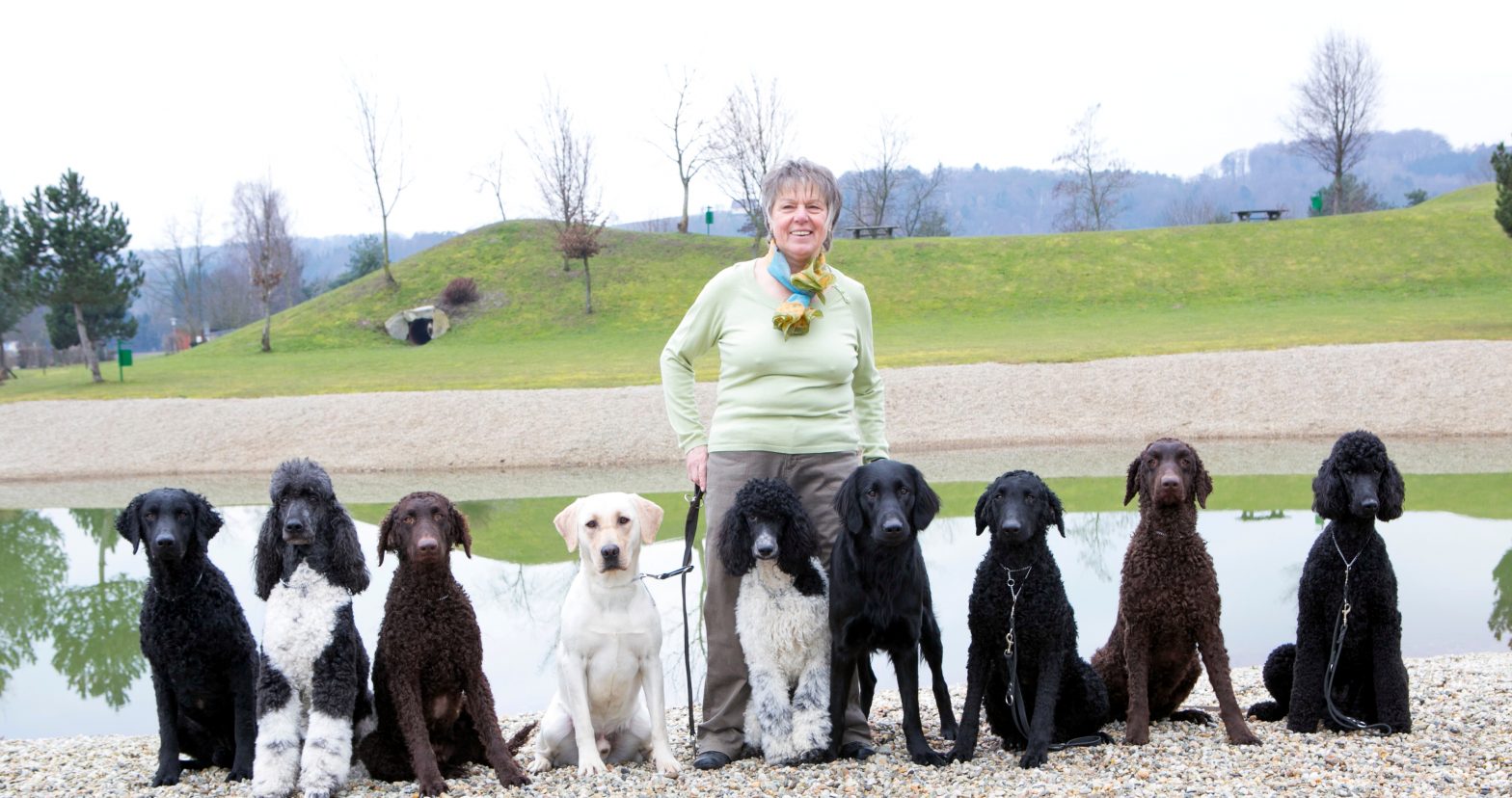My training of guide- and service Dogs
Service dogs are trained to assist people with a physical or mental incapacitation with managing their everyday lives independently.
These working dogs are divided into the following groups:
- Guide Dogs or Seeing Eye Dogs
- Service Dogs
- Medical Alert Dogs
- Therapy Dogs
- Dogs for people with multiple disabilities
Guide Dogs
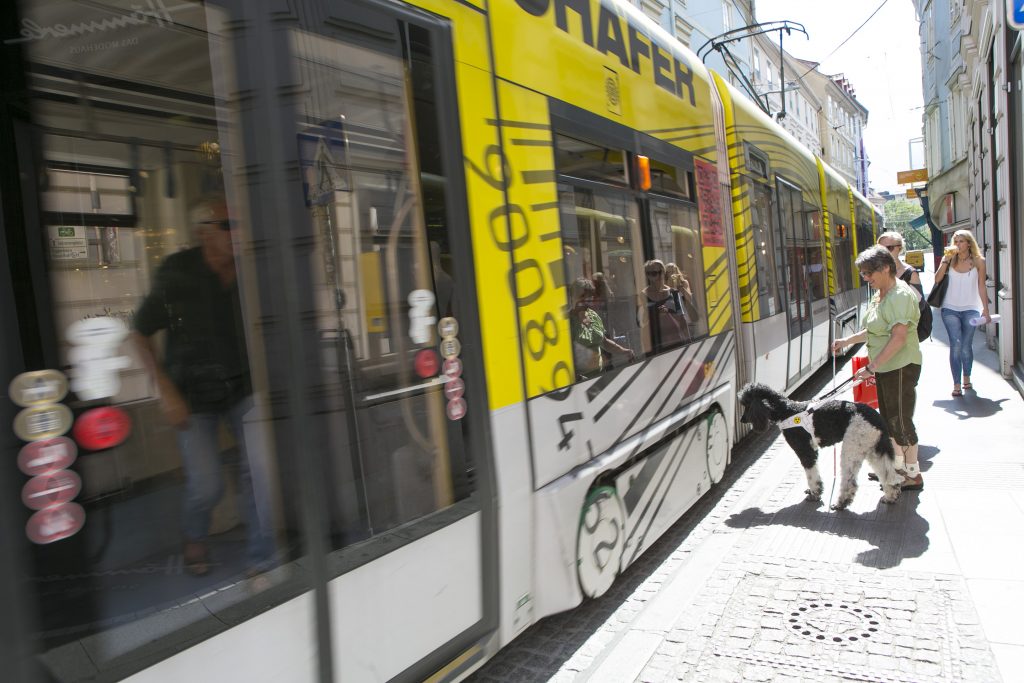
Guide dogs are trained to assist their handler by assisting the handler’s vision impairment.
- They look for markers in the environment to alert the handler to, such as traffic lights, cross walks, entrances and exits, elevators, places to sit, stairs etc.
- They prevent the handler from stepping into danger zones
- They work independently, find the way home, indicate obstacles or avoid them.
Thus the people disadvantaged
- are able to walk confidently.
- independently.
- At all hours of the day and night.
Service Dogs
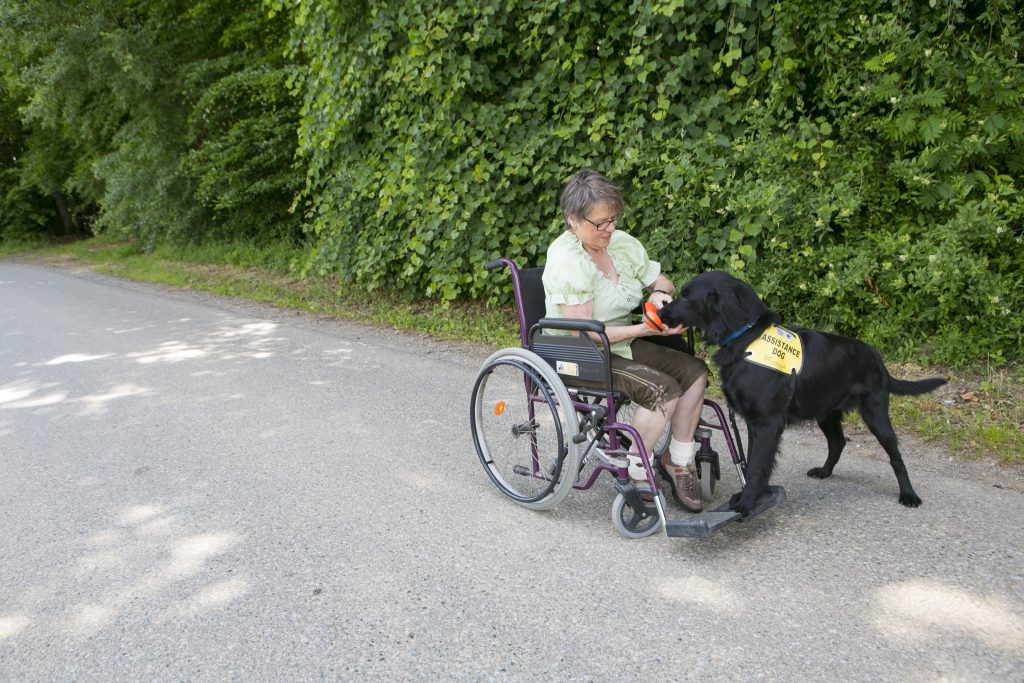
The duty of the Service dog is to balance out the physical limitations of their handlers.
They are specifically trained to pick up objects, open doors or drawers, make a call for help etc.
Medical Alert Dogs
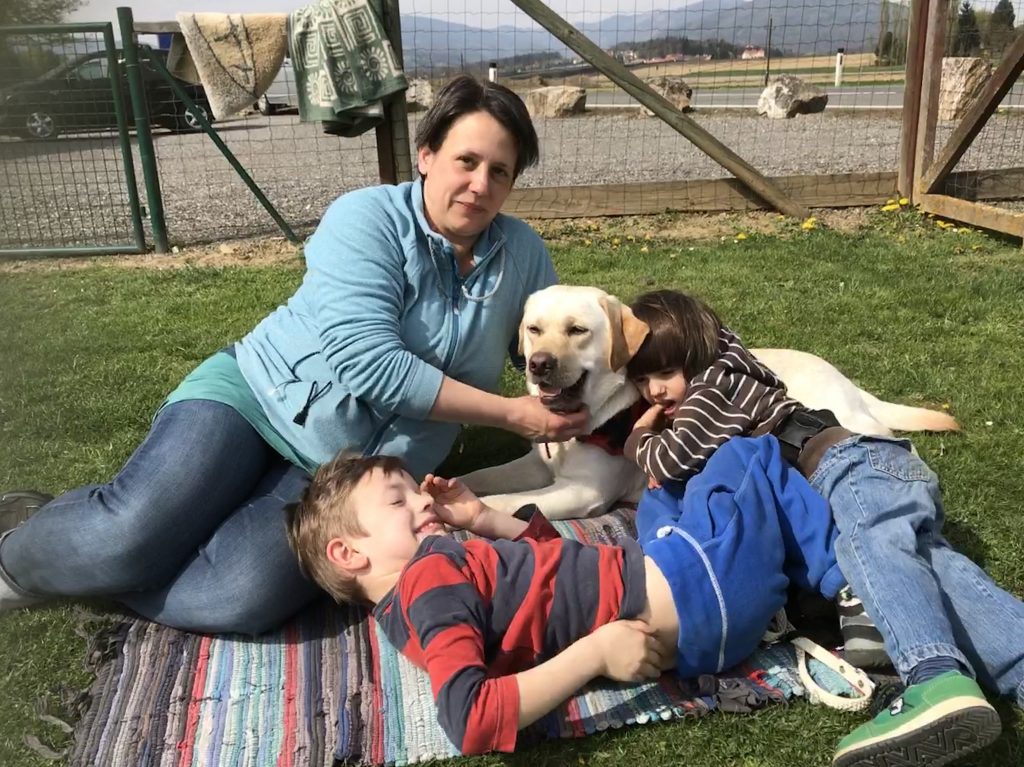
Medical Alert dogs are trained to recognize sounds or patterns of behavior and to act accordingly.
Medical Alert dogs include:
- Hearing Dogs
- Diabetes- and Epilepsy Alert Dogs
- Autism Service Dogs
- Dogs for Post Traumatic Stress Disorder (PTSD)
- Alzheimer Dogs
Therapy Dogs
Therapy dogs give children and adults that have severe disabilities the possibility of interacting with an animal by cuddling, stroking or playing and also by participating in therapeutic activities with the dog. This contributes to positive sensations and an elevation of wellbeing and happiness in the person as well as in the caregivers.
Dogs for people with multiple disabilities
The video shows a black curly coated retriever guiding his handler as she descends a flight of stairs.
This type of education for the dog requires a very experienced trainer. In effect it is a dual career for the dog, as it combines two separate areas of service dog types. For instance, a guide dog performs double duty as a physical support dog. A dog that is a guide dog and also a signal dog for a person with limited hearing or vision.
Very often ways in which a trained dog can help a specific individual don’t become apparent until the handler/ dog training begins.
All service dogs must possess the following qualifications:
- A very calm and composed demeanor
- Extremely friendly toward people
- Basic obedience
- Enjoy working independently
- Enjoy physical contact
- Enjoy retrieving
- Enjoy affection
Support of Teams / Continuing Education
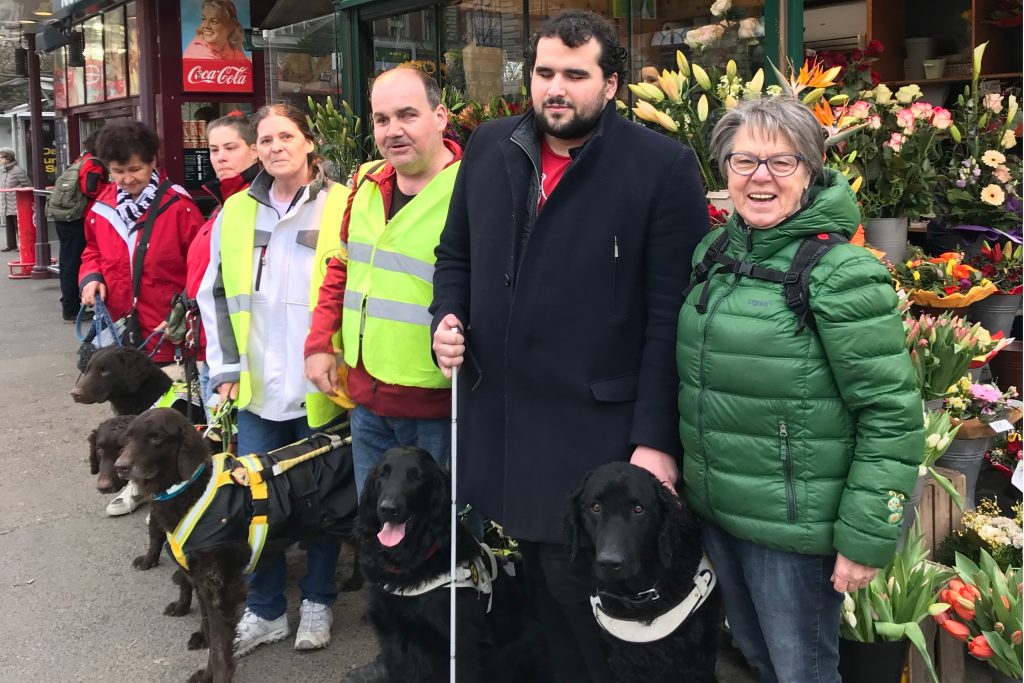
From the beginning, it was important to me to accompany our teams beyond the initial forming of the team and to provide any necessary support to them in the months and years to follow.
The Guide- and Service Dog School organizes events such as city- and cultural trips for our teams. This provides an opportunity to gain insight into the performance of the teams in an unfamiliar environment. The trainer assists with questions and troubleshooting.
In the evenings everyone is free to socialize with one another and exchange opinions and experiences. This is always interesting and lots of fun.
We are committed to our guide- and service-dog teams for the entire lifetime of the dog.
 Maria Gerstmann
Maria Gerstmann
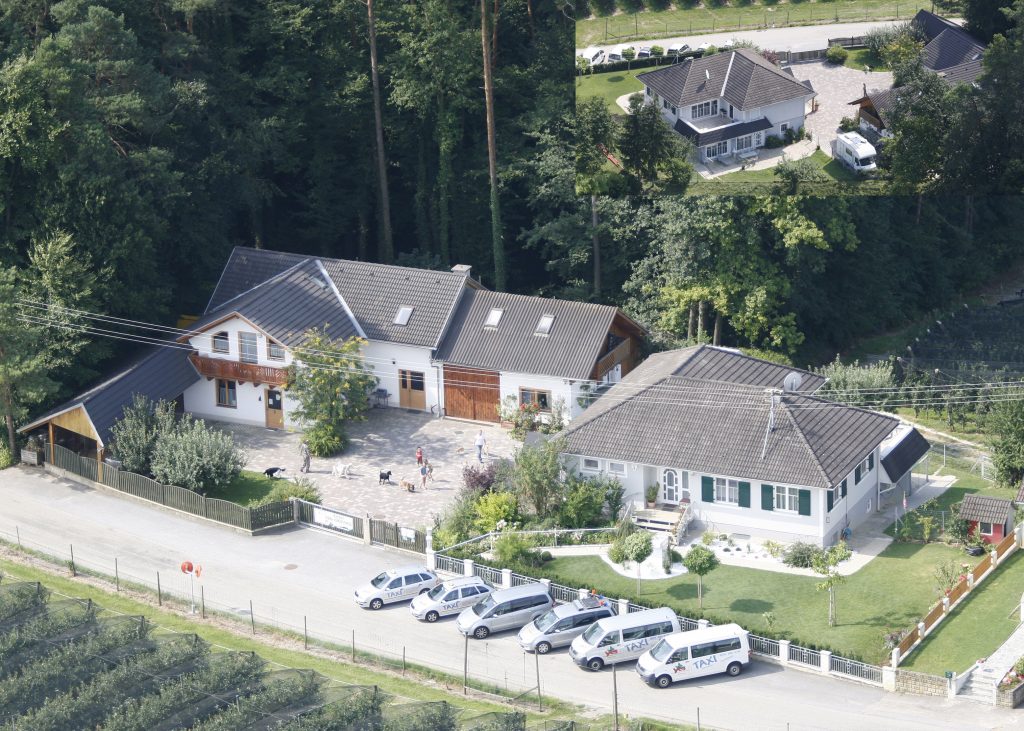

I live in Styria, a province of Austria, close to the city of Graz in an idyllic area with apple orchards and forests.
From a very young age I gained experience with people and animals. As a dog groomer and truck driver I learned to deal with and assess animals and people constantly. I learned independence and duty from having my own businesses. After many years of being involved in basic obedience as well as search and rescue work I decided to become involved in guide dog training to assist people in need of these dogs beginning in 1995. In the course of the following years I expanded my school to include all of the above mentioned service dogs.
Today my specialty is training dogs for people with concomitant or multiple disabilities. I am in contact with specialists around the world due to my intense commitment to this cause.
As of March 2019 my training school is called “Assistance Dog School Gerstmann” or “Assistenzhundeschule Gerstmann”
Professional continued education and exchange of experience
Since the early 1990’s I have had the pleasure of experiencing work at the following schools for guide dogs and service dogs:
- Seeing Eye, Morristown, New Jersey
- Southeastern Guide Dogs, Tampa, Florida
- Leader Dogs for the Blind, Rochester, Michigan
- Canine Companions for Independence (CCI), Santa Rosa, California
- Paws With A Cause, Wayland, Michigan
- Blindenführhundeschule Hirschgarten, Deutschland
- Stiftung Schweizerische Schule für Blindenführhunde in Allschwil
- South African Guide Dogs, Johannesburg
- Bulter/Mekke Assitancedogs, Holland
- Guide Dogs of America, Los Angeles
- Guide Dogs for the Blind, San Rafael, California
- Dogs for the Deaf, Central Point, Oregon
- Support Dogs, St. Louis
- Ecole de Chiens Guide de Paris, Frankreich
- Lions Foundation of Canada DOG GUIDES
- Stiftung Ostschweizerische Blindenführhundeschule
- Ireland 2017 Irish Guide Dogs
- Ireland 2017 Dogs for the disabled
- Australia 2018 Guide Dogs Victoria
At Western Michigan University, Kalamazoo, Maria Gerstmann participated in a guide dog Trainer mobility Seminar with Professor David A. Guth, Ph.D.
Maria Gerstmann was an attendee at the following IGDF (International Guide Dog Federation) seminars.
At these seminars only guide dog schools that are IGDF certified meet for several days to discuss the newest Scientific Data and practical Application of guide dog training.
France, Paris 2012
Croatia, Hvar 2016
Australia, Sydney 2018
